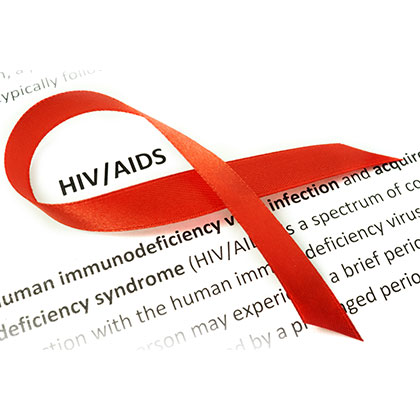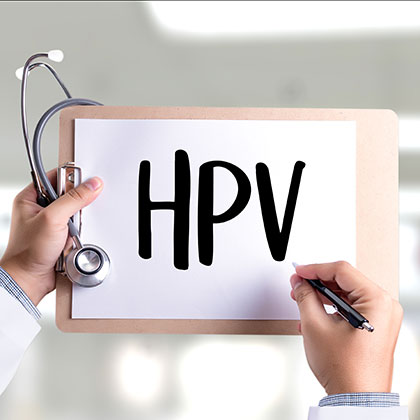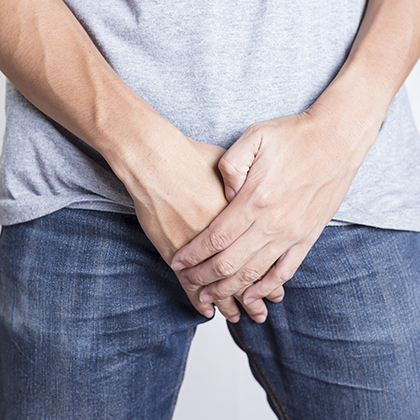
Caused by the bacterium Neisseria gonorrhoeae or Neisseria gonococcus, gonorrhoea is a sexually transmitted infection (STI) that mostly affects the genital areas – though it can also affect the throat and eyes, and may rarely spread to other parts of the body.
According to the sexual health and wellbeing charity Brook, gonorrhoea is the second most common bacterial STI in the UK after chlamydia (i). The number of people being affected by gonorrhoea is also currently increasing, particularly men.
According to Patient, the most recent figures suggest a 15 per cent increase in the number of diagnosed gonorrhoea cases in 2013 compared with 2012 (ii). That same year, men who have sex with men made up 63 per cent of all gonorrhoea diagnoses, which was 26 per cent more than the previous year (ii). The highest rates of gonorrhoea are also thought to be among young adults between the ages of 15 and 24 (ii).
How is it spread?
The gonorrhoea bacterium is found in semen and vaginal fluids and can cause an infection in the cells of the cervix (entrance to the uterus/womb), the urethra (the tube that carries urine out of the body from the bladder), the rectum (the section of the digestive tract above the anus) and the throat.
Gonorrhoea is spread from person to person via unprotected sexual contact, whether vaginal, anal or oral. You can also get gonorrhoea by sharing sex toys without washing them or covering them with a condom each time you use them. The infection can be passed from mother to baby during childbirth too, which means it’s important to get tested and treated before your baby is born if you’re pregnant and you think you may have gonorrhoea.
However, since the bacteria can’t survive outside the human body for long, you can’t get gonorrhoea from kissing, hugging, swimming pools, toilet seats or by sharing things such as baths, towels, cups, plates or cutlery.
Things that may increase your risk for getting gonorrhoea include:
-
Your age (younger people are more commonly affected).
-
A history of STIs.
-
A history of having more than one STI at the same time (called co-infection).
-
Having a new sexual partner.
-
Not using condoms consistently.
What are the symptoms?
Not everyone with gonorrhoea has symptoms. In fact, around one in 10 infected men and half of infected women have no signs or symptoms at all(iii). And in women who do have symptoms they can often be mild or mistaken for another infection, such as a bladder or vaginal infection.
However, since untreated gonorrhoea can cause serious complications in women, it’s important that you get tested for the infection if you’ve had unprotected sex – even if there’s no sign of any problem.
If you do get symptoms they usually develop around two weeks after you were infected – though sometimes they may not show up for several months or even years.
Symptoms in men
Most men with gonorrhoea have symptoms(iii), including the following:
-
An unusual white, yellow or green discharge from the tip of the penis.
-
Pain or a burning sensation during urination.
-
Swollen foreskin.
-
Feeling you want to pass urine frequently or irritation inside the penis.
-
Painful or tender testicles (though this isn’t common).
Symptoms in women
Women with gonorrhoea have a 50:50 chance of experiencing symptoms, such as:
-
An unusual green or yellow vaginal discharge that may also be thin or watery.
-
Pain or a burning sensation during urination.
-
Pain or tenderness in the lower part of the stomach (this is less common).
-
Bleeding between periods, having heavier-than-normal periods and bleeding after sex (also less common).
-
Some women with gonorrhoea may also experience pain during sex.
Other symptoms
Both sexes can get infected by the gonorrhoea bacterium in the rectum, throat or eyes by having unprotected anal or oral sex.
-
In the eyes it can cause irritation, pain, swelling or discharge, as well as conjunctivitis, also called red eye or pink eye.
-
Infection in the rectum can cause discomfort, itching, soreness, bleeding or discharge.
-
If your throat has been infected, however, you won’t usually have any symptoms (though some people may find their throat becomes sore).
Gonorrhoea complications
Gonorrhoea can be painful and if you don’t treat it early enough it can cause complications, including some serious health problems.
In women, gonorrhoea can cause pelvic inflammatory disease if it spreads to the reproductive organs. This can lead to long-term pelvic pain, infertility and ectopic pregnancy (pregnancy outside the uterus/womb). According to the NHS, between 10 and 20 per cent of cases of untreated gonorrhoea in women are estimated to cause pelvic inflammatory disease (iv).
Gonorrhoea can also cause serious complications during pregnancy, including miscarriage and having a premature birth. If the infection is passed from mother to baby during childbirth it can cause serious vision problems, even blindness, if the baby isn’t treated straight away. It can’t, however, cause cervical cancer.
Male fertility can also be affected by untreated gonorrhoea if the testicles or prostate gland become infected – though this doesn’t happen very often. Poor prostate health can also be linked to common conditions like erectile dysfunction, you can find out more about prostate health by reading this article. Rarely the urethra may also become more narrow in men. And very rarely, untreated gonorrhoea can cause a life-threatening infection in men and women called sepsis if it spreads through the bloodstream. Having untreated gonorrhoea is also thought to increase your risk of being infected with HIV.
How is it treated?
The only way to know for certain if you have gonorrhoea is to have a test. Even if you don’t have any symptoms you should consider having a test if any of the following apply:
-
You’ve recently had unprotected sex with a new partner.
-
You or your partner have had unprotected sex with other partners.
-
A partner tells you they have a STI.
-
You have another type of STI.
-
You’re pregnant or planning a pregnancy.
Your partner should also be tested, even if they don’t have any symptoms. According to Patient, any sexual partners you’ve had within the previous three months should also be notified, tested and treated, especially if you haven’t had any symptoms and don’t know how long you’ve been infected (i).
You can be tested within a few days of having unprotected sex – though you may be advised to wait up to a week. The most important thing is to get tested as early as possible, as being diagnosed with gonorrhoea means you’ll receive treatment for it, which can reduce the risk of complications.
You can be tested for gonorrhoea at a sexual health or genitourinary medicine (GUM) clinic, though you may also be able to get tested at your local GP’s surgery. Click here to find sexual health services near where you live.
If your test results come back positive for gonorrhoea, you will usually receive a short course of antibiotics to treat the infection. This usually involves having an antibiotic injection followed by a single tablet.
Your symptoms – if you have any – should start to improve within a few days, though you may have to wait a couple of weeks for them to disappear completely. And you may also have to go back for another test a week or two after treatment, just to make sure the infection has cleared.
In the meantime you shouldn’t have sex until you’ve been given the all-clear, as you may pass the infection to someone else if you have sex too soon after treatment. Also bear in mind that having had gonorrhoea doesn’t mean you’re immune to it – in other words, you can be re-infected if you have unprotected sex with someone who has the infection.
Resistant bacteria
In recent years, medical experts have become concerned about the risk of gonorrhoea becoming untreatable (v). They fear the infection may be becoming resistant to the antibiotics that treat it, with a highly drug-resistant strain of the infection already having emerged in some parts of the country.
Antibiotic resistance is a problem for all types of infection, not just gonorrhoea. So to make sure that they will work for you when you really need them you should always take your antibiotics as instructed, and never save them to use them another time or share them with anybody else. If you’re not sure how to take them, speak to your GP, nurse or pharmacist.
Natural support for gonorrhoea
Protecting yourself against gonorrhoea includes practising safe sex, which means using a condom whenever you have any type of sex. This reduces your risk of getting other STIs too.
Meanwhile if you’re being treated with antibiotics for gonorrhoea, using natural supplements may help support your immune system, which could help your body recover more effectively. Immune-supporting supplements include the following:
Live bacteria
Experts believe live bacteria – also called ‘friendly’ bacteria – may help regulate and support the immune system (vi). These live bacteria are thought to help restore the natural balance of bacteria in your gut. Live bacteria are available in supplement form, but you could also add these foods and drinks to your diet, such as sauerkraut, live yoghurt, kefir and kombucha.
High-strength multivitamin and mineral
As well as having a healthy diet, taking a high-strength multivitamin and mineral supplement may help make sure your immune system is getting all the nutrients it needs to stay as strong and effective as possible, especially when dealing with infections. For the best results, a multivitamin and mineral supplement should include good levels of zinc, which is thought to be important for immune function (vii) as well as vitamin D (viii).
Elderberry juice
Another supplement that may be useful for immune health is elderberry extract as it contains powerful antioxidants called anthocyanins. There is also evidence to suggest black elderberry extract increases the body’s production of chemical messengers within the immune system called cytokines, suggesting it has an immune-supporting function (ix).
Vitamins B and C
Both of these vitamins support the normal functioning of the immune system. But despite the fact that they’re found in a wide range of everyday foods, many of us may be running short. To make sure you’re getting the level of the B and C vitamins your immune system needs, you may want to consider taking a high-quality B complex supplement as well as a high-quality vitamin C supplement. You can also get both nutrients in good levels in a quality multivitamin and mineral formulation.
Other things you could try include adding a couple of cups of Epsom salts to a warm bath to help relieve some of the symptoms of gonorrhoea, or putting a spoonful of raw honey in warm water or tea if the infection has given you a sore throat.
Follow the tips we have set out above to avoid contracting gonorrhoea, and minimising the effects of antibiotics if necessary. To find out about more common health conditions, visit our health library.
References:
-
Available online: https://www.brook.org.uk/your-life/gonorrhoea/
-
Available online: https://patient.info/doctor/gonorrhoea-pro
-
Available online: https://patient.info/sexual-health/sexually-transmitted-infections-leaflet/gonorrhoea
-
Available online: https://www.nhs.uk/conditions/gonorrhoea/complications/
-
Available online: https://www.bbc.co.uk/news/health-35153794
-
Yah, F., Polk, D.B.. Probiotics and immune health. Curr Opin Gastroenterol. (2011 Oct). ;27(6): 496–501. Available online: https://www.ncbi.nlm.nih.gov/pmc/articles/PMC4006993
Chiang, B.L., Sheih, Y.H., Wang, L.H., et al. Enhancing immunity by dietary consumption of a probiotic lactic acid bacterium (Bifidobacterium lactis HN019): optimization and definition of cellular immune responses. Eur J Clin Nutr. (2000). ;54:849-855. Available online: https://www.ncbi.nlm.nih.gov/pubmed/11114680
Aziz. N., Bonavida B., Activation of Natural Killer Cells by Probiotics. For Immunopathol Dis Therap. 2016;7(102):41-55. Available online: http://www.dl.begellhouse.com/journals/1a654bf03faf67ac,2451af3842dace87,4072614f2000aab7.html -
Chandra, R.K. Trace element regulation of immunity and infection. J Am Coll Nutr. (1985). ;4:5-16. Available online: https://link.springer.com/chapter/10.1007/978-4-431-68120-5_23
Fraker, P.J., Gershwin, M.E., Good, R.A., et al. Interrelationships between zinc and immune function. Fed Proc. (1986). ;45:1474-1479. Available online: https://pubmed.ncbi.nlm.nih.gov/3485544/ -
Aranow, C. Vitamin D and the Immune System. J Investig Med. (2011 Aug). 59(6):881-886. Available online: https://www.ncbi.nlm.nih.gov/pmc/articles/PMC3166406
-
Barak, V., Halerpin, T., Kalickman, I. (2015). The effect of Sambucol, a black elderberry-based, natural product, on the production of human cytokines: I. Inflammatory cytokines. Eur Cytokine Netw. (2001 Apr-Jun). ;12(2):290-6. Available online: https://www.ncbi.nlm.nih.gov/pubmed/11399518
Related Posts
Disclaimer: The information presented by Nature's Best is for informational purposes only. It is based on scientific studies (human, animal, or in vitro), clinical experience, or traditional usage as cited in each article. The results reported may not necessarily occur in all individuals. Self-treatment is not recommended for life-threatening conditions that require medical treatment under a doctor's care. For many of the conditions discussed, treatment with prescription or over the counter medication is also available. Consult your doctor, practitioner, and/or pharmacist for any health problem and before using any supplements or before making any changes in prescribed medications.

Christine
Christine Morgan has been a freelance health and wellbeing journalist for almost 20 years, having written for numerous publications including the Daily Mirror, S Magazine, Top Sante, Healthy, Woman & Home, Zest, Allergy, Healthy Times and Pregnancy & Birth; she has also edited several titles such as Women’ Health, Shine’s Real Health & Beauty and All About Health.
View More



